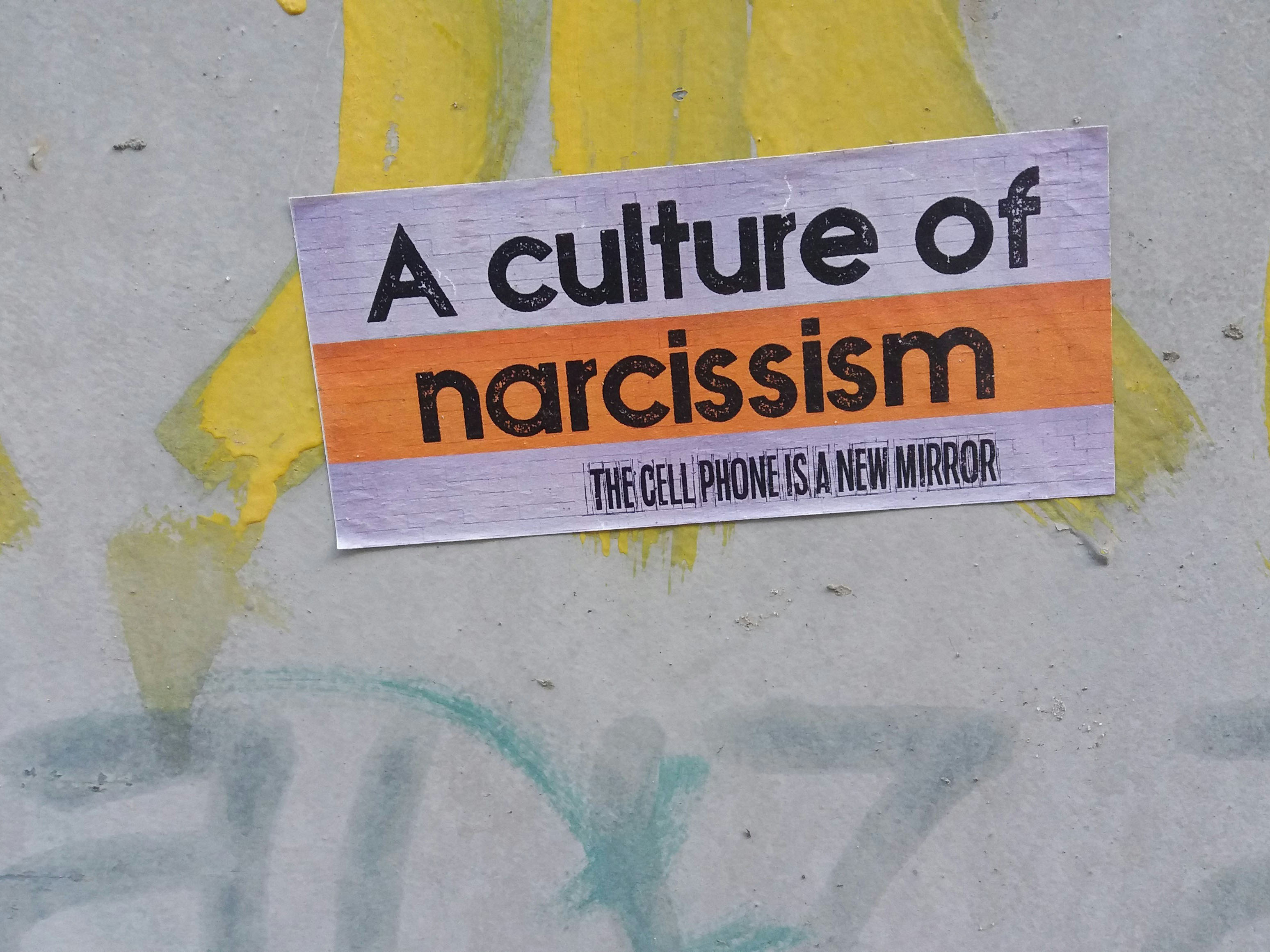News - Advertising
Roger Halaby on Narcissistic Consumers
by Roger Halaby, Hanging Gardens
January 2, 2025
.jpg) Advertisement
AdvertisementIn today's cluttered marketing landscape, the ability to segment and target specific consumer personalities has become increasingly crucial for achieving marketing excellence. Among these set consumer segments, narcissistic consumers represent a particularly compelling and profitable demographic that demands specialized marketing approaches as the spectrum of narcissistic criteria in everyday consumers presents unique opportunities for strategic marketing professionals who understand how to effectively engage with these characteristics.
The psychological foundation of narcissistic consumer behavior reveals a complex matrix of motivations that directly influence purchasing decisions and brand interactions. These consumers typically express an inflated sense of self-importance, combined with an intense need for admiration and validation. Their self-perceived superiority and characteristic lack of empathy create a distinctive consumer profile that responds to carefully modelled marketing strategies. Their preoccupation with fantasies of success, power, brilliance, and ideal beauty makes them particularly receptive to marketing messages that align with these aspirations, presenting valuable opportunities for brands that can effectively position themselves within this aspirational framework.
From a marketing perspective, understanding the core motivations of this audience becomes crucial for developing targeted campaigns. Their consumer behavior is predominantly driven by a strong desire for status, power, and control, making them naturally drawn to brands that promise to enhance their self-image and reinforce their perceived uniqueness. These consumers demonstrate increased sensitivity to social influence, particularly from those they perceive as high-status individuals or influential figures within their social spheres, creating multiple touchpoints for strategic marketing intervention.
Personalization appears as a cornerstone strategy in marketing extending far beyond basic customization. Sophisticated marketing automation systems can be leveraged to create highly individualized experiences through dynamic content generation, predictive analytics, and behavioral targeting. This includes involving recent technologies that learn from individual browsing and purchasing patterns, implementing advanced marketing campaigns with dynamic content blocks that adapt to consumer preferences, and creating exclusive offer structures that make each consumer feel uniquely valued.
The strategic implementation of social proof requires a multifaceted approach for the targeting scope. This involves carefully selected influencer partnerships that align with the brand's premium positioning, sophisticated testimonial campaigns featuring high-achievement individuals, and strategic placement of user-generated content from influential customers. The key lies in creating a compelling narrative that associates the brand with success, achievement, and social status, effectively tapping into the narcissistic consumer's desire for association with high-status individuals and their susceptibility to social validation.
Visual marketing strategies play a crucial role in capturing and maintaining the attention of narcissistic consumers. This will involve developing sophisticated brand identity systems, creating premium visual content, and maintaining consistent luxury-oriented aesthetic standards across all marketing channels. The implementation of high-end photography, premium quality video content, and sophisticated graphic design elements contributes to creating an aspirational brand image that resonates with their desire for luxury and exclusivity.
"The future of marketing to narcissistic consumers lies in the sophisticated integration of technology, psychology, and strategic marketing principles."
Marketing communications for narcissistic consumers require careful attention to both message content and delivery mechanisms. The development of a distinct brand voice that employs sophisticated language patterns and premium messaging frameworks can effectively engage this demographic. Marketing copy should be implemented to emphasize exclusivity, personal achievement, and social status, while maintaining a tone that suggests insider knowledge and privileged access to information or opportunities. The creation of exclusive marketing channels and premium content delivery can significantly enhance the engagement criteria. This might include developing private shopping platforms, creating member-only digital spaces that provide increasingly exclusive benefits based on customer value and engagement levels. The strategic use of marketing principles, combined with carefully timed limited-edition releases, can create compelling purchase motivators for this demographic.
Customer relationship management strategies should focus on creating personalized engagement pathways that recognize and reward their perceived special status. This includes developing sophisticated loyalty programs that offer exclusive benefits, creating VIP customer service channels, and implementing personal shopping services that provide individualized attention and recognition. The key is to create a sense of special treatment and privileged access that reinforces their desire for uniqueness and importance.
Digital marketing strategies should be specifically tailored to appeal to their desire for recognition and status. This includes developing sophisticated social media campaigns that encourage sharing and personal branding opportunities, creating exclusive online communities with restricted access, and implementing digital recognition systems that publicly acknowledge customer status and achievements. The integration of user-generated content platforms that allow consumers to showcase their lifestyle and purchases can further enhance engagement and brand loyalty. Event marketing and experiential campaigns also present particularly effective opportunities for engagement. This involves creating exclusive events that offer VIP experiences, developing invitation-only product launches, and organizing high-status networking opportunities. These events should be designed to create shareable moments that allow attendees to demonstrate their privileged access and special status to their social networks.
Success in marketing to narcissistic consumers ultimately requires a sophisticated understanding of their psychology combined with strategic implementation of advanced marketing techniques. By carefully balancing personalization, exclusivity, and ethical considerations, marketers can develop compelling campaigns that resonate with this influential consumer segment while building lasting brand relationships. The key lies in recognizing and addressing their unique needs while maintaining authenticity and transparency in all marketing efforts.
Ethical considerations must remain at the forefront of marketing strategies targeting this segment, and any segment. While it's important to appeal to their psychological characteristics, marketing professionals must maintain a balance between effective engagement and responsible practice. This includes developing clear guidelines for marketing communications, ensuring transparency in promotional activities, and creating value propositions that deliver genuine benefits while avoiding exploitative practices.
The future of marketing to narcissistic consumers lies in the sophisticated integration of technology, psychology, and strategic marketing principles. As digital and social platforms evolve and consumer behavior becomes increasingly complex, marketing professionals must continue to innovate in their approaches while maintaining ethical standards and building genuine value for this unique and influential consumer segment.



.jpg)





.jpg)




